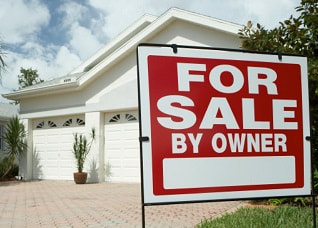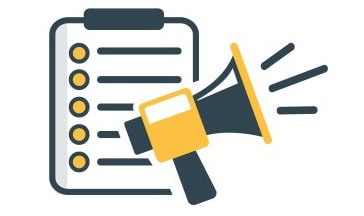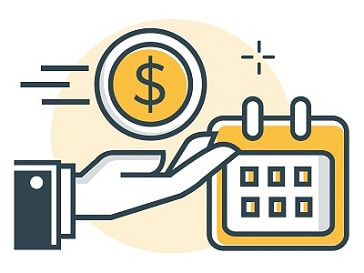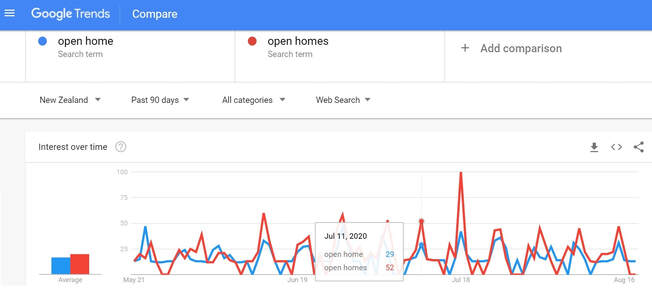How to Sell Your House Privately - The Definitive Guide for New Zealand Homeowners
Our guide explains everything you need to know about setting a price, hosting open homes, dealing with potential buyers, negotiating a sale and working with a solicitor
Updated 23 January 2024
Selling your home without a real estate may seem daunting, but for anyone willing to invest a little time upfront, the process is relatively easy. Additionally, the visibility of TradeMe property listings, the power of a motivated seller (i.e. you) and a good property market will align to create a positive selling experience. This translates into more money for you by way of saving on agents fees and, potentially, negotiating a higher sale price.
To help you know what's involved, our guide covers the process in seven key steps:
We also cover:
Know this first:
Selling your home without a real estate may seem daunting, but for anyone willing to invest a little time upfront, the process is relatively easy. Additionally, the visibility of TradeMe property listings, the power of a motivated seller (i.e. you) and a good property market will align to create a positive selling experience. This translates into more money for you by way of saving on agents fees and, potentially, negotiating a higher sale price.
To help you know what's involved, our guide covers the process in seven key steps:
- Step 1: Make Your Home ‘Buyer Approved’ Before You List It
- Step 2: Organise Effective Marketing
- Step 3: Pre-Arrange the Paperwork (And Make Sure It's Complete)
- Step 4: Maximise the Efforts of the Open Home
- Step 5: Pricing Your Home to Sell (And Make a Profit)
- Step 6: Understand the Importance of a Solicitor
- Step 7: Selling and Settling
We also cover:
Know this first:
- Real estate commission generally ranges from 2.95% to 3.95% of your sale price (up to $400,000, then 2.00% to 2.50% on the remainder of the sale price). Our guide to real estate agent fees and commissions has more information.
- There are few variations, but generally, the average New Zealand home owner will pay around $15,000 to $25,000 to a real estate agent on their home sale. We estimate the same homeowner can sell their home for around $1,250 to $2,000 (covering TradeMe listing fees, printed materials, signage and smaller one-off expenses). This means the savings are significant.
- Beyond saving money on real estate commissions, it's arguable that homeowners passionate about their property can sell it for a higher price than even the most experienced real estate agent.
- Buyers typically respond well to someone who has passion and intimately knows the property. Also, there's no more motivated salesperson than a homeowner.
Table 1 - Real Estate Commission Costs vs Selling Privately
Sale Price |
2.95% Commission Cost |
3.50% Commission Cost |
Sell Your Home Privately Costs |
$300,000 |
$8,850 |
$10,500 |
$1,250 to $2,000 |
$500,000 |
$14,750 |
$17,500 |
$1,250 to $2,000 |
$750,000 |
$22,125 |
$26,250 |
$1,250 to $2,000 |
$1,000,000 |
$29,500 |
$35,000 |
$1,250 to $2,000 |
$1,500,000 |
$44,250 |
$52,250 |
$1,250 to $2,000 |
$2,000,000 |
$59,000 |
$70,000 |
$1,250 to $2,000 |
Seven Must-Know Steps for Selling Your Home Privately
Selling your home privately isn't that different from using an agent in terms of the legal process. However, setting a price and being firm in negotiations are often the most difficult for homeowners. The steps and sub-steps below explain everything you need to know.
Step 1: Make Your Home ‘Buyer Approved’ Before You List It
Declutter as much as possibleBuyers want to envision their belongings in your home. If there’s too much clutter, including too much furniture or too many personal items (such as wall hangings), it makes the home feel stressful. Buyers want empty space so they can picture their items in the home to see if it feels ‘homey’ to them. In every case, "less is more" and it's unwise to stash things in the garage - a homeowner evaluates all areas they see, not just the living spaces.
|
Hire a stager or ask a friend for helpOnce you've tidied your home and had a sell-down of things you don't need, it's wise to get fresh eyes on your home. Letting someone that doesn’t live in your home help spruce it up means your home can be staged professionally to maximise its market appeal. This involves more than just finishing touches (throw pillows, a pretty rug, or a couple of knick-knacks), home staging can involve furniture switches to complete the look.
|
Make quick cosmetic changesA coat of paint goes a long way. It makes buyers feel as if the home is ‘freshly done.’ Look at other cosmetic issues, such as minor scratches, dings, or areas you can quickly fix and make the home look brand new. Give buyers that move-in ready feeling rather than the ‘I have to do so much work if I buy this’ feeling. Most buyers want a property that's in perfect condition; very few are looking for a DIY project.
|
Organise a deep cleanBuyers don't want to see cobwebs, dust or dirty windows. If you're going to get the best possible price for your home, it needs to be spotless. The reality is that many private sellers invest upfront in a professional cleaner. Dirty marks here and there, dusty windows tell a story of a bad maintained place and influence buyers negatively.
|
Step 2: Organise Effective Marketing
Get professional photos, even if from a friendUnless you have an eye for photos, let someone else do it. If you go down the DIY approach, be aware that photos make or break a property listing. You'll need to mimic the images you see on other TradeMe listings by looking to see what works (and what doesn't). Alternatively, hiring a photographer is an added expense, but you're almost guaranteed to be delivered the best results.
|
Write a compelling description for your home's online listingsOnce your pictures attract a buyer’s attention, they’ll read about your property. Make your description as attractive as possible. Use descriptive words and talk about all areas of the home. Make it so readers can feel themselves in the home from your words alone. Look at (existing) detailed listings and get inspiration from these.
|
Market the property offline and onlineSelling your home takes on-site and online promotion.
For on-site:
|
Prepare user-friendly and informative information packsThe information packs should include:
|
Step 3: Pre-Arrange the Paperwork (And Make Sure It's Complete)
Get the documents sorted in advance (and print plenty of copies)When potential buyers visit your home, you'll come across as trusted and authentic if you can supply the property's paperwork upfront. Many buyers will ask for the documents upfront.
Specifically - you will need:
|
Step 4: Maximise the Efforts of the Open Home
Prepare yourself for the open homeThe reality is that buyers look at you, not just the home. How do you present yourself? If you look frazzled and overwhelmed, buyers will feel it. The best approach is:
|
Prepare your home right before the open homeNo matter how much preparation work you put in the home, if it’s untidy, buyers will be turned off. To prepare for every open home, spend a couple of hours dusting, vacuuming and mopping floors. Once that's finished, light a candle, bake some biscuits or brew some coffee, and make the home feel ‘homey.’
|
Don’t say ‘no’ to private viewingsSome buyers want a private viewing. It's best to agree to this. Many private sales proceed because potential buyers don’t like to feel the pressure of open home. Buyers want to see your property on their time, not yours. While this may be disruptive, it can generate strong sales interest. To help make the process easier, make sure your home is easily tidied upon demand.
|
Don’t indulge real estate agents showing clients your propertyTradeMe listings generate interested buyers - for this reason alone you will almost never need an agent to involve themselves in your private sale. If you do, and their buyer goes ahead, you'll have to pay the agent's fee. It also affects the dynamic as you're negotiating sales price with an agent rather than the buyer directly. To avoid all of this, the best approach is to avoid agents with the confidence that the right buyer will come along.
|
Step 5: Pricing Your Home to Sell (And Make a Profit)
Follow a simple formula for setting the priceMost people aren't experienced in selling items worth hundreds of thousands of dollars. The best approach is to look at:
You can also contact a real estate agent for a no-obligation valuation. Whatever your final number, it's best to ask for a little extra to cover buyer(s) bargaining you down. Pro Tip: Get familiar with property values in your area; oneroof.co.nz offers fair and reasonable pricing. Investigate what properties sold for in your area recently and look at their listing photos and features. Do those homes have more or less features, better or worse condition, proximity to transport and schools etc? These factors are all important to properly price your home. Warning: Avoid the risk of underselling your property. The best approach is to know your bottom line. Do not go under it just to get a quick sale. A good idea is to write down the lowest price you'll accept and stick to it. Buyers will negotiate downward (it's expected), but you will lose more by wavering easily. Be firm and confident in your bottom line price. If you're still unsure, a registered valuer will give you a price. However, that's an additional cost you may not want to incur. However, a registered valuation will be the same amount that a bank lends to the purchaser on. |
Important: Don't rush into accepting offersYou'll likely receive offers from prospective buyers via email. Handle these with care - don't rush back to say "yes" if you believe more offers will follow. It's all too easy to accept the first offer only to receive a better offer later (and then have to decline in). Or, worse, sign the Sale and Purchase agreement with the buyer and receive a late offer that's higher than what you've agreed to. By then it's too late to get out of the sale.
Generally, the best approach is to take things slowly while keeping buyers well-informed about when they'll hear back from you. |
Step 6: Understand the Importance of a Solicitor
Solicitors are an essential cost (and partner) in a private house saleGenerally:
|
Step 7: Selling and Settling
Final StepsIf your Sales and Purchase agreement is conditional, the sale of your home becomes 'unconditional' when the conditions are satisfied. Your solicitor will handle the following steps:
|
Selling Your Home Privately - Frequently Asked Questions
Few homeowners have experience in selling a home privately. To help anticipate some of the concerns or issues, our FAQs explains useful points.
Should I get to know the buyers during the selling process?
Yes - this is one of the best ways to make buyers feel more ‘at home.’ The best approach is to talk to them and find out their reasons for looking for a home. Their presence in your home shows they're interested, so showing them some specifics about the home (i.e. best features, proximity to shops and schools, favourite aspects, some interesting history etc.) will help make a connection. It's also completely authentic as you live in the home, so you're the most knowledgeable and qualified to sell it.
Can I get an estimated house price from a real estate agent?
Yes, it's perfectly acceptable to get a 'no obligation' valuation from an agent. You can find out important things like what the agent thinks of your home and what the agent would charge. If you like the agent and feel as if they can sell it better than you (and/or for a higher price), then you can evaluate this in your decision-making.
What is an unconditional agreement?
Sometimes (not often) buyers enter an agreement unconditionally. This means they sign the contract without any (ways out) of the contract. If they have financing, trust your pricing, and that the home will be worth as much as you say, they may go unconditional which gets you to settling the sale faster. However, in most cases, the contract will state that's it's subject to financing and a building report. This is standard practice throughout New Zealand.
How much can I save by not using a real estate agent?
It varies by area and home price, but on average, sellers save $15,000 to $25,000 (or more) by conducting the sale themselves.
Do buyers use agents to find them properties?
Yes, some buyers exclusively use agents because they are busy or don’t want to be bothered with finding listings themselves. However, this is relatively rare. Many buyers don’t use agents and shortlist properties using TradeMe. If you’re comfortable waiting for the right buyer to come along, it is usually worth the large amount of savings that comes with avoiding an agent altogether. Agents may speak of 'premium buyers', or a 'black book of buyers', but the reality is that it's more of a sales technique.
Can an agent visit my open home and make an offer?
Yes - anyone can visit your open home, unless you arrange viewings by appointment only. If you do appointment-only, you can restrict who visits your property by asking the buyer's intentions first and saying yes or no to a viewing. Nonetheless, agents may bring clients who make an offer. If this happens, they will insist on receiving their standard commission. For this reason, it's important to nurture the leads/interested buyers you generate and not panic later on and running the risk of relying on an agent.
Who provides the Sale and Purchase Agreement after agreeing on a price?
The seller (i.e. you) provides this document. Settled.govt.nz suggests all private sellers get a lawyer or conveyancer to draw up the sale and purchase agreement. It's rare for the buyer's solicitor to provide a Sale and Purchase agreement.
Should I hire a solicitor before receiving an offer?
When selling a house privately, it’s best to have everything in place first rather than 'hunt and gather' on the way. Also, if you have a buyer that wants a streamlined process, having a solicitor in place speeds up the process and makes you look organised. Your solicitor may help you with minor details preparing for your home's listing too. We believe that solicitors offer an invaluable service and earn the fee they charge.
Do I need to get an independent valuation?
No. Some banks may ask buyers to arrange an independent valuation as part of the loan approval process. This is usually the process regardless of whether it's a private sale or sold using a real estate agent. In any case, the buyer pays for the independent valuation to be prepared.
What day and time is best for an open home?
We analysed Google traffic for “open home" and "open homes" searches over the past 90 days. The search term peaks every Saturday, week after week. This fits with the accepted practice of real estate agents primarily hosting open homes on a Saturday. The next question is what time is best on Saturday. A deep dive into data suggests Google traffic for open homes surges in the morning, meaning you're likely to capture potential buyers in the afternoon. Our suggestion is anywhere between 2pm and 5pm. Many people look at a lot of open homes in one day, so you have the opportunity to create an impression when buyers have seen a lot of housing stock by the time they reach your door.
What's the difference between a 'conditional' and 'unconditional' Sale and Purchase Agreement?
Most home buyers will insist on a conditional sale and purchase agreement and be reluctant to sign an unconditional agreement. But what does this mean? We explain the difference:
- Conditional Sale and Purchase Agreement: This is the standard contract and is designed to protect the buyers should there be an issue. The purchase is conditional on the buyers having their mortgage approved, the building inspector's report not flagging any issues, a market valuation report that meets the bank's needs and other minor documents. These documents are organised by the buyers, who also pay the fees. Completing the work typically takes between one and two weeks. Once the buyer and lender are satisfied, the sales process can move forward.
- Unconditional Sale and Purchase Agreement: These are quite rare and usually only seen when the seller wants to secure a serious buyer. This means the buyer won't be able to back out, nor will the seller. It's realistic to say unconditional agreements are incredibly rare in New Zealand.
Private Sale vs Agent Sale Myth Busting
The claim: "You’ll save $15,000 to $25,000 (and possibly more)"
Myth or true: Based on the high average New Zealand house price, our table analysis above suggests the estimated savings are accurate for the average home. Something to keep in mind is how long it takes to earn that amount of money after-tax. For example, $25,000 is around $37,000 gross. For some people, this is six months' salary. If you're prepared to follow the private sale process, the results (in fee savings alone) can be very financially rewarding.
The claim: "Agents are not motivated to give you the best price; they like a fast sale so they can service other clients"
Myth or true: It depends on the agent, but let's explain the logic as to why fast sales are better for agents. Negotiating an extra $20,000 more from a buyer is going to earn a real estate agent around $500 to $700, whereas making a sale for a $750,000 house will lead to a $25,000 fee. Furthermore, real estate agents don't earn all their fee - they pay a good percentage to the agency to cover costs. So getting you an extra $20,000 may only be worth around $200 for them (after-tax). By selling privately, you control the process and can set the price and be firm on what you want it sold for.
The claim: "Agents have an exclusive or secret buyers list".
Myth or true: Agents only make money if someone buys via their agency. Unless you're selling a multi-million dollar home and don't have the time to sell, agents are not necessary, nor do they have exclusive lists. Buyers hunt using TradeMe and are increasingly familiar with the concept of a private sale.
The claim: "Agents promote properties professionally and better than anyone else".
Myth or true: Some Agents are good, many are great - but it's arguable that nobody can promote your house better than you can. New Zealanders increasingly respond well when owners talk about the property rather than agents.
Myth or true: Based on the high average New Zealand house price, our table analysis above suggests the estimated savings are accurate for the average home. Something to keep in mind is how long it takes to earn that amount of money after-tax. For example, $25,000 is around $37,000 gross. For some people, this is six months' salary. If you're prepared to follow the private sale process, the results (in fee savings alone) can be very financially rewarding.
The claim: "Agents are not motivated to give you the best price; they like a fast sale so they can service other clients"
Myth or true: It depends on the agent, but let's explain the logic as to why fast sales are better for agents. Negotiating an extra $20,000 more from a buyer is going to earn a real estate agent around $500 to $700, whereas making a sale for a $750,000 house will lead to a $25,000 fee. Furthermore, real estate agents don't earn all their fee - they pay a good percentage to the agency to cover costs. So getting you an extra $20,000 may only be worth around $200 for them (after-tax). By selling privately, you control the process and can set the price and be firm on what you want it sold for.
The claim: "Agents have an exclusive or secret buyers list".
Myth or true: Agents only make money if someone buys via their agency. Unless you're selling a multi-million dollar home and don't have the time to sell, agents are not necessary, nor do they have exclusive lists. Buyers hunt using TradeMe and are increasingly familiar with the concept of a private sale.
The claim: "Agents promote properties professionally and better than anyone else".
Myth or true: Some Agents are good, many are great - but it's arguable that nobody can promote your house better than you can. New Zealanders increasingly respond well when owners talk about the property rather than agents.


























